Table of Contents
Subordinating conjunctions are words that link two parts of a sentence, showing how one part depends on the other. These words help to join a less important idea (a dependent clause) to a more complete thought (an independent clause).
By using subordinating conjunctions, you can create more interesting and detailed sentences. They help explain why something happens, when it happens, or under what conditions, making your writing clearer and smoother.
What is a Subordinating Conjunction?
A subordinating conjunction is a word that connects a dependent clause (incomplete thought) to an independent clause (complete thought).
It shows the relationship between the two clauses and indicates that one clause is less important or subordinate to the other.
- I stayed home because it was raining.
- She smiled although she was nervous.
- You can go if you finish your homework.
Coordinating and Subordinating Conjunctions
| Feature | Coordinating Conjunctions | Subordinating Conjunctions |
|---|---|---|
| Purpose | Connect elements of equal importance | Connect a dependent clause to an independent clause |
| Types of Elements Joined | Words, phrases, or independent clauses | Dependent and independent clauses |
| Number of Main Conjunctions | Seven | Many (e.g., because, although, if, when, since) |
| Common Conjunctions | for, and, nor, but, or, yet, so | because, although, if, when, since, while, unless |
| Clause Independence | Both clauses can stand alone | Dependent clause cannot stand alone |
| Structure Example | Independent clause + coordinating conjunction + independent clause | Independent clause + subordinating conjunction + dependent clause (or vice versa) |
| Example Sentence | I wanted to go to the park but it started raining | She went to bed early because she was tired |
| Relationship Shown | Equality | Dependence (cause, condition, time, contrast, etc.) |
Function of Subordinating Conjunction Words
1. Cause
These conjunctions show the reason for an action or event:
- Because
- Since
- As
- Seeing that
- Inasmuch as
Example Sentences:
- She stayed home because she was feeling unwell.
- Since it was late, we decided to leave.
- He apologized as he realized his mistake.
2. Effect
These conjunctions indicate the result of an action or event:
- So that
- That
- In order that
Example Sentences:
- She speaks slowly so that everyone can understand her.
- He studied hard that he might secure the top position.
- I left early in order that I could catch the bus.
3. Time
These conjunctions show when something happens in relation to another action:
- When
- While
- As
- Before
- After
- Until
- Since
- As soon as
- Once
- Whenever
Example Sentences:
- When the bell rang, the students rushed out of class.
- He was reading while I was cooking.
- After we finished dinner, we went for a walk.
4. Place
These conjunctions indicate the location of an action or event:
- Where
- Wherever
Example Sentences:
- Stay where you are until I come back.
- Wherever she goes, she makes new friends.
- The picnic will be held where the river meets the forest.
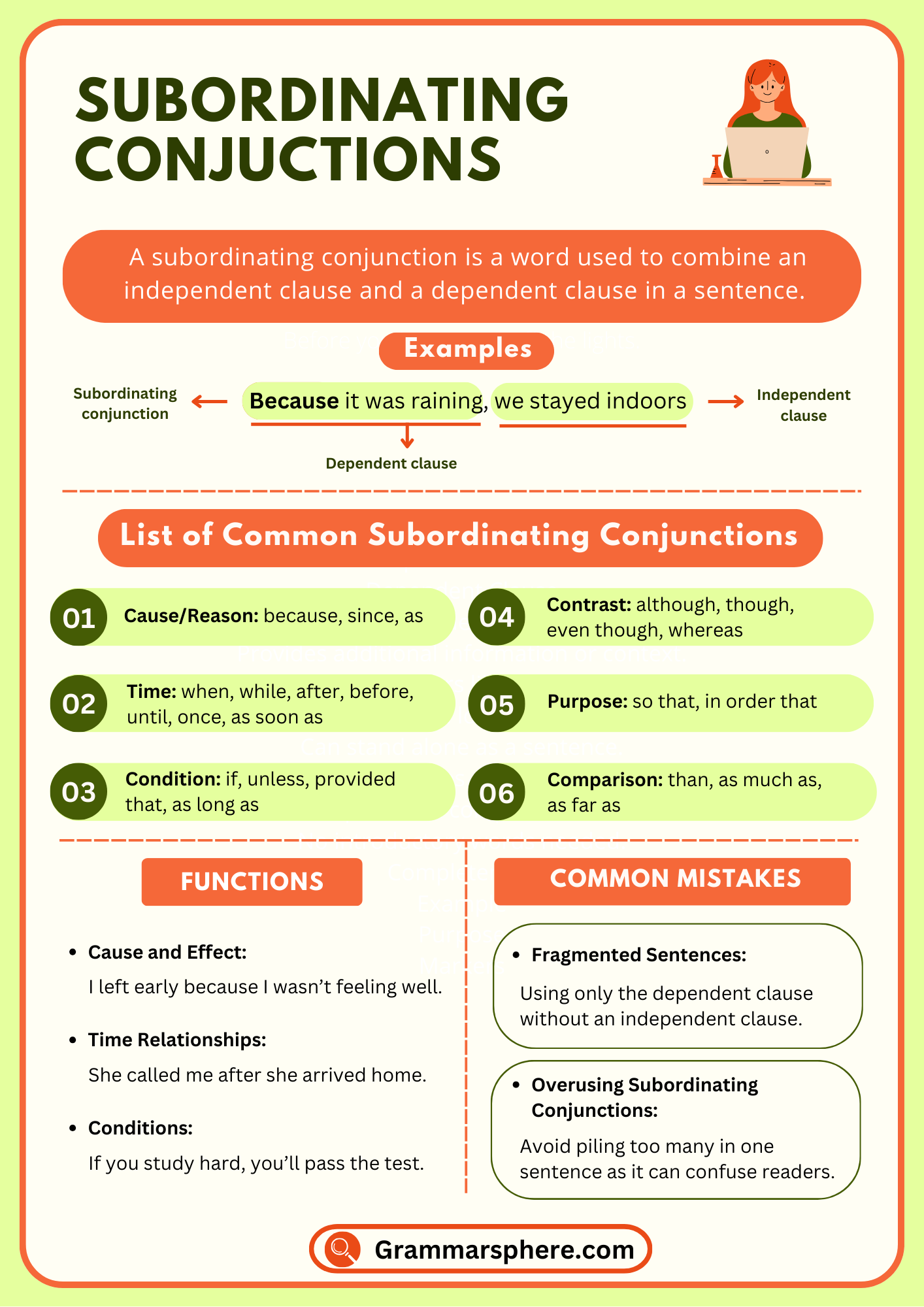
How to Use Subordinating Conjunctions
Subordinating conjunctions are used to connect a dependent clause (incomplete thought) with an independent clause (complete thought). They show relationships like cause, effect, time, place, condition, or contrast.
Steps to Use Subordinating Conjunctions
1. Identify the Relationship
Understand whether the subordinating conjunction is showing cause, time, condition, etc.
2. Place the Subordinating Conjunction
It can be at the beginning or in the middle of the sentence.
3. Use a Comma if Needed
- When the subordinating conjunction starts the sentence, use a comma after the dependent clause.
- No comma is needed if the dependent clause comes second.
Examples
Beginning of the Sentence
- Because it was raining, we stayed indoors.
- Although she was tired, she finished her homework.
Middle of the Sentence
- We stayed indoors because it was raining.
- She finished her homework although she was tired.
Subordinating Conjunctions Showing Cause and Effect
Subordinating conjunctions are words that connect two parts of a sentence by showing a relationship between them. When they indicate cause and effect, they explain the reason (cause) for an action and its result (effect).
These conjunctions make sentences clearer by showing why something happened. Common subordinating conjunctions for cause and effect include because, since, as, and so that.
Examples
1. Because:
She stayed home because she was feeling sick.
(Cause: she was feeling sick; Effect: she stayed home)
2. Since:
Since it was raining, we decided to cancel the picnic.
(Cause: it was raining; Effect: we canceled the picnic)
3. As:
As he forgot his homework, the teacher gave him extra assignments.
(Cause: he forgot his homework; Effect: he got extra assignments)
5. So that:
She studies every day so that she can pass her exams.
(Cause: she studies every day; Effect: she can pass her exams)
Examples of Subordinating Conjunctions
- She stayed home because she wasn’t feeling well.
- Although it was raining, they continued playing outside.
- We left early so that we could avoid the traffic.
- He waited patiently until the train arrived.
- Since she studied hard, she passed the test with flying colors.
- You can come with us if you finish your homework.
- As he was walking, he found a wallet on the street.
- We decided to go hiking even though the weather wasn’t perfect.
- Whenever I visit my grandparents, they cook my favorite food.
- She couldn’t attend the meeting because her car broke down.
Why Subordinating Conjunctions Are Important
Subordinating conjunctions are essential for connecting dependent and independent clauses, forming complex sentences that clarify relationships between ideas. They show cause, time, condition, or contrast, enhancing meaning and improving writing flow.
By combining ideas logically, they prevent choppy sentences and allow for deeper, clearer communication. Examples include because, although, until, and so that.
List of Subordinating Conjunction
1. Cause
- Because
- Since
- As
- Inasmuch as
- Seeing that
2. Effect
- So that
- That
- In order that
- Time
- When
- While
- Before
- After
- Until
- Since
- As soon as
- Once
- Whenever
3. Place
- Where
- Wherever
4. Condition
- If
- Unless
- Provided that
- As long as
- In case
5. Contrast/Concession
- Although
- Though
- Even though
- While
- Whereas
6. Purpose
- So that
- In order that
7. Comparison
- Than
- As
FAQS of Subordinating Conjunctions
You May Also Like

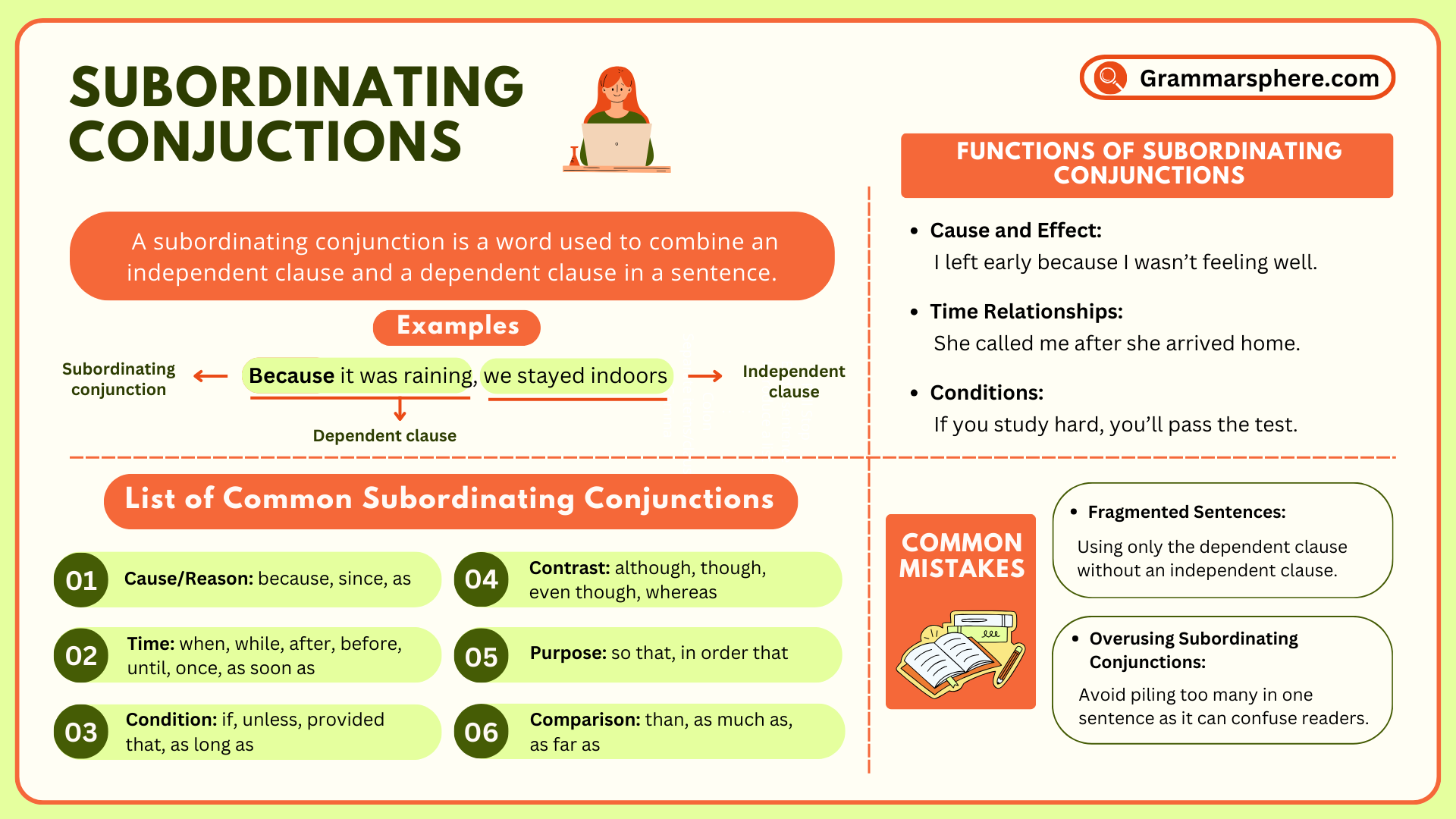
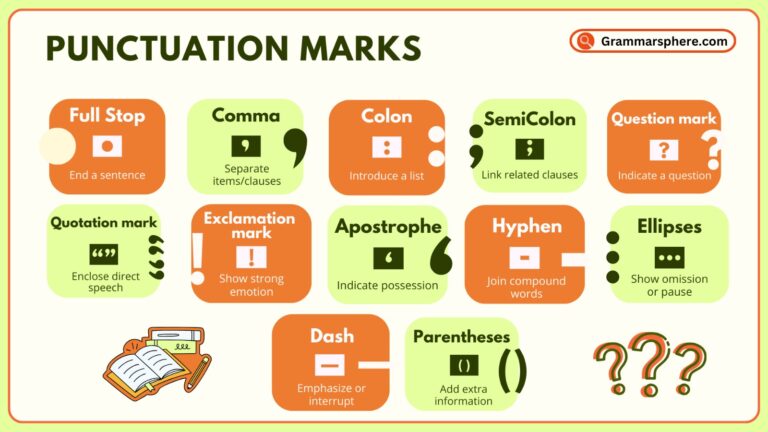
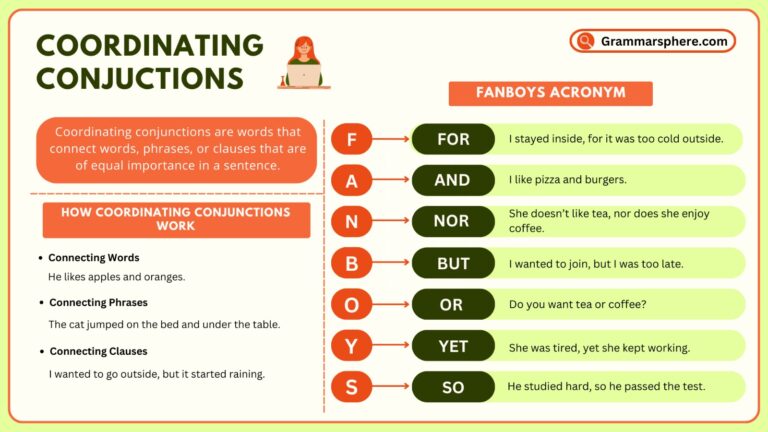
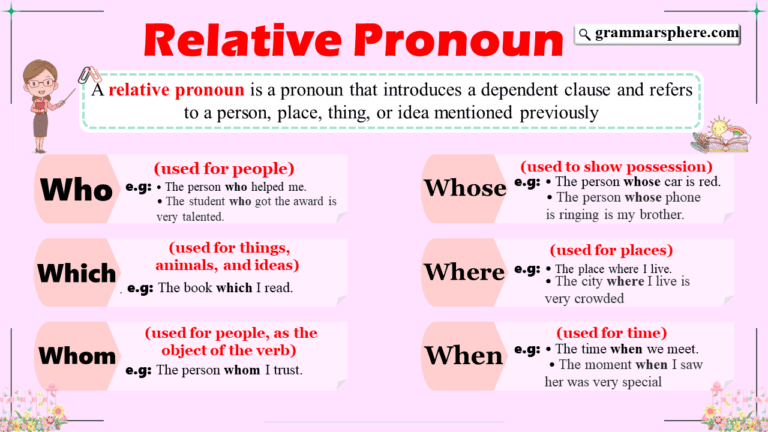
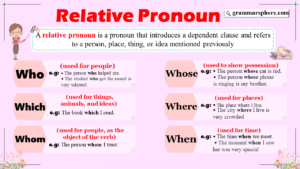
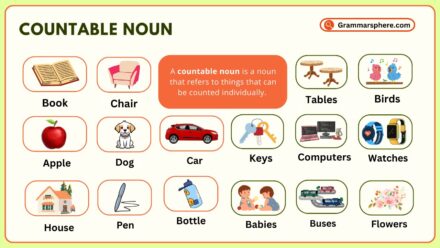
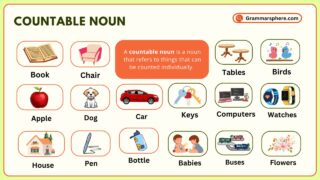
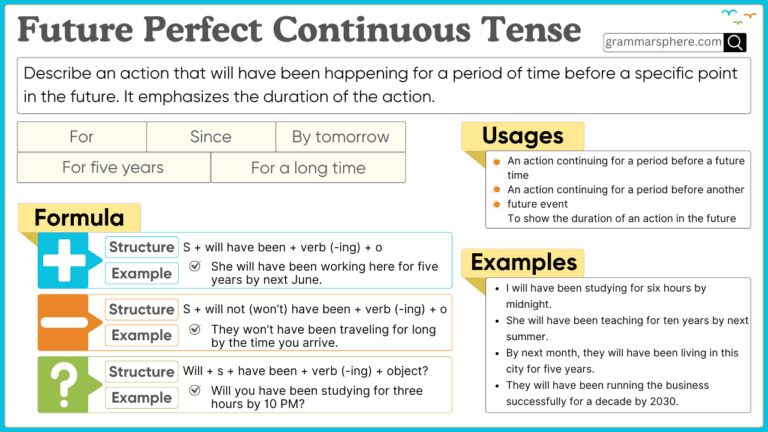
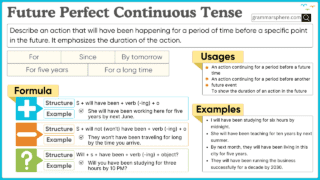
Leave a Comment